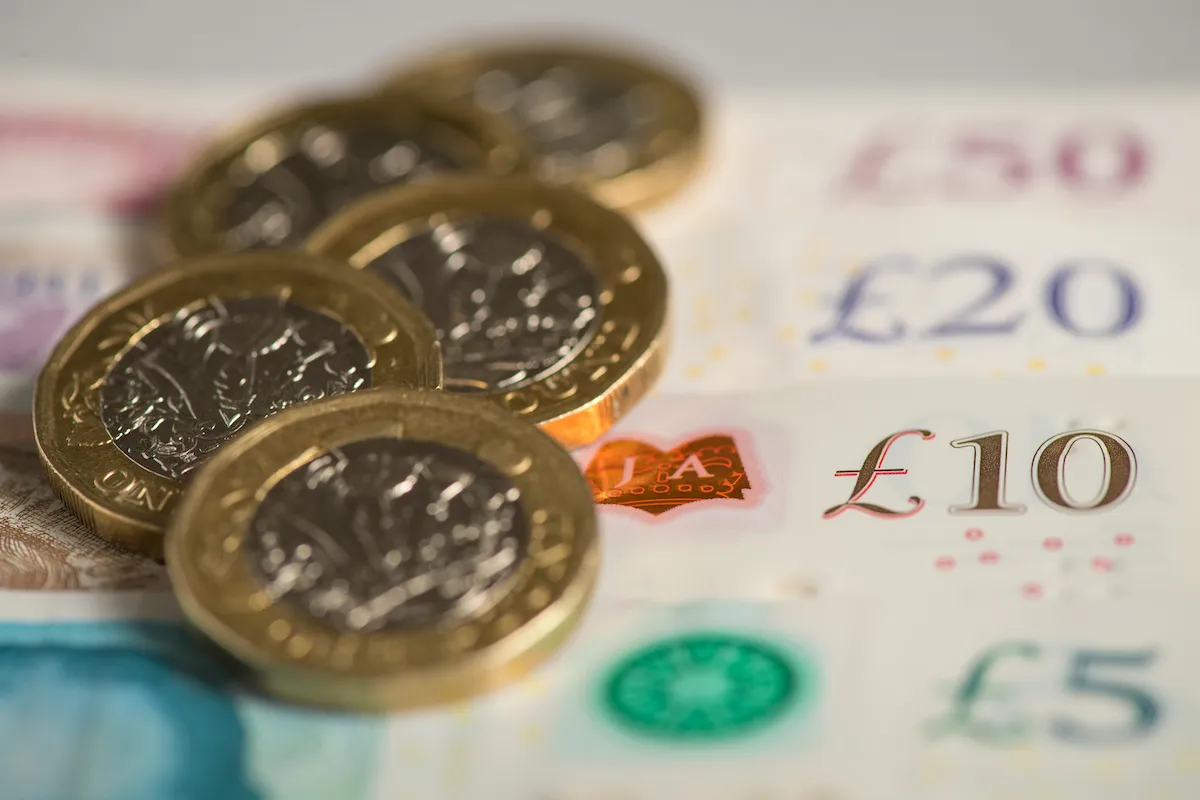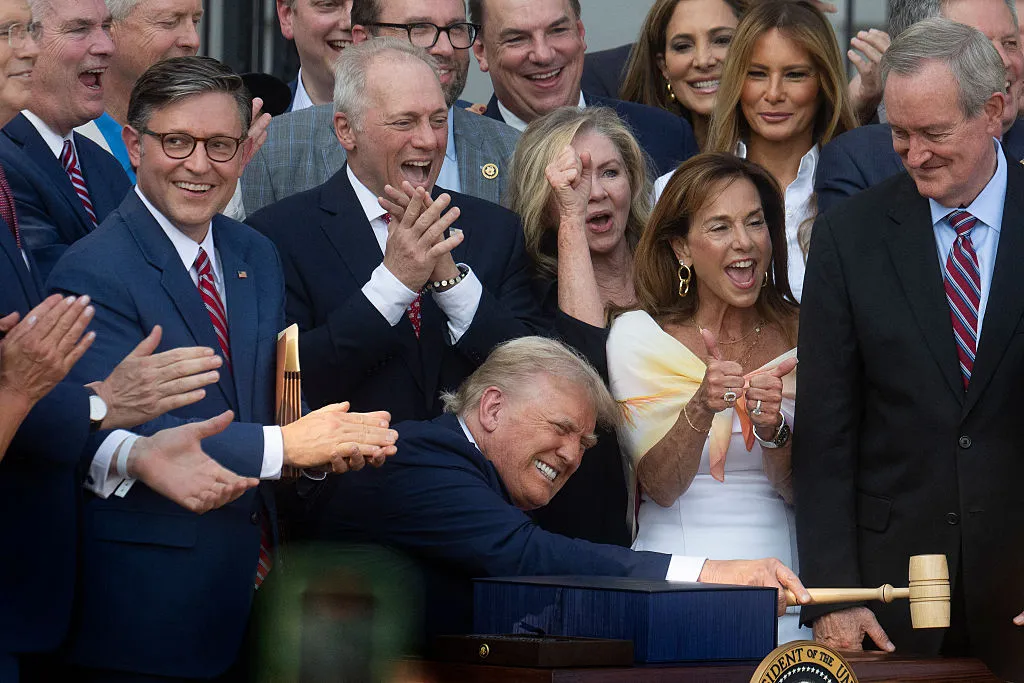Copyright cityam

For a few weeks, there was one thing Rachel Reeves appeared to speak about more than anything else: inflation. Earlier this month, the Office for National Statistics (ONS) confirmed inflation hit 3.8 per cent in the year to September, nearly double the Bank of England’s target rate. The IMF and the OECD said the UK would suffer the highest price growth out of any G7 country over the next two years. Much of this is Reeves’ own making. A £25bn tax raid on employers last year forced businesses to pass costs onto consumers. In a Cabinet meeting two weeks ago, the Chancellor said the cost of living was the “biggest challenge” for Britons. She urged her government to “bear down on inflation” by controlling public spending and pushing for growth. Lower inflation could do wonders for Reeves. For one, it could prompt the Bank of England to cut interest rates at a faster pace, persuading even the most hawkish members of the Monetary Policy Committee to loosen policy. Not only would that mean cheaper mortgages for Brits, which would boost the housing market, but it could allow the Treasury to reduce its £110bn debt interest payments to its lenders in the bond markets. Some gilts, the title for UK government bonds, are also index-linked where interest payments are linked to measures of price growth. Reducing inflation may therefore be the most useful cheat code for Reeves to make savings in future years and regain the public’s trust on Labour’s management of the UK economy. All those benefits would only come after the Budget. For the time being, Reeves is gearing up to plug an estimated £30bn hole in the public finances. Some growth-focused policies could both boost government hopes of reducing inflation and come at a little cost to the government. Other changes may help to lower inflation, almost by chance. Given tax hikes and spending cuts are set to come, the Chancellor may have to rely on some more brutal measures to get to her desired outcome on price growth. But Reeves could also – yet again – end up stoking inflation through making some specific tax hikes on goods or through pushing ahead with Labour policies. Stripping VAT from energy bills Energy secretary Ed Miliband has hinted that VAT could be stripped from household bills at the Budget. Household energy bills are subject to 5 per cent VAT, with much of the tax being paid by consumers rather than providers. Pantheon Macroeconomics believes the cut would cost around £2.5bn and leave Reeves with a bigger fiscal hole to fill. But analysts at Barclays believe a reduction of VAT on would lower headline inflation by 0.15 percentage points for households while other researchers have suggested that the policy would help inflation fall under three per cent by spring 2026. Regen, a net zero think tank, have said the measure would be “vital” in tackling the cost-of-living crisis and persistent inflation. “Reducing VAT on gas and electricity is probably the easiest and quickest way for the chancellor to reduce household costs and show that the government is listening to the concerns of billpayers,” the report claims. John Underhill, professor in geoscience and energy transition at the University of Aberdeen, told City AM that the deflationary impact of the VAT cut will be cancelled out by the long-term costs of decarbonising the grid. Hiking income taxes Reeves is reportedly considering raising income taxes in this year’s Budget. Prime Minister Keir Starmer refused to rule out a U-turn at PMQs this week. It has been reported that the Chancellor could take on an idea proposed by the left-leaning think tank Resolution Foundation, which has urged the Chancellor to raise funds with an income tax raid and simultaneous cut to national insurance paid by workers. . James Smith, research director at the Resolution Foundation, told City AM: “Deciding which [taxes] to raise should be informed by the need to avoid stoking inflation as well as commitments made by the Chancellor on protecting working people.” A 1p hike to income tax, without a simultaneous national insurance cut, would raise some £10bn, the think tank said. An income tax hike would be deflationary as it would result in lower disposable income and consumer spending, hitting demand across the UK economy. Barclays’ forecasts, which are based on the expectation that Reeves will hike income taxes, show price growth falling below two per cent by the middle of next year. But the higher tax burden could also prompt workers to demand pay rises from their employers, which could result in higher prices and drive up inflation, according to some Stephen Millard, deputy director for macroeconomics at the National Institute of Economic and Social Research (NIESR) Leading tax experts have demanded a sweeping reform of VAT in order to drive growth. There have been conflicting positions between economists on whether the VAT registration threshold for businesses that have turnover of over £90,000 is a cliff-edge – inhibiting small firms from growing due to additional costs – and whether it is too low or too high. The consultancy RSM has suggested the “cliff edge” to VAT suggests the government should look to lower the threshold in a phased approach to generate higher tax revenue and allow firms to grow organically, a view shared by some at centre-right think tanks. Experts at the Institute of Chartered Accounts in England and Wales have argued that high administrative costs from the complex VAT system, due to carve-outs and exemptions for goods including children’s clothes and vegetables, suggest the base should be extended to ease regulatory burdens. But the central looming threat to exacerbating inflation levels could undermine growth efforts. NIESR analysts said a higher VAT rate would have a “serious negative impact” on the UK economy. Recent research indicated higher VAT could add as much as 2.5 percentage points to inflation levels in the short term and keep interest rates higher in the long term. ‘Sin’ taxes If Labour sticks to its manifesto pledge, it will have to raise taxes elsewhere. The government is reportedly considering “sin taxes” – hikes on alcohol, gambling, tobacco and sugar duty – to raise funds. The Scotch Whisky Association has said that the price of alcohol is already a key driver of inflation, claiming that booze accounts for £3 in every £100 of inflation rises. Millard said a sin tax would push up inflation, but only by a small amount. He added that the small increases in the price of these goods have little effect on demand, and they account for a low proportion of an individual’s spending. Millard added a hike to fuel duty, which could come at the budget, would push up inflation significantly as average spending on petrol makes up a higher proportion of income. The government says its flagship Employment Rights Bill will give more rights to workers, and business secretary Peter Kyle has insisted it will pass into law without any amendments. But businesses have warned that it could slow hiring and lead to employment lawsuits, which are costly for workers and employers. Tom Ironside, director of business and regulation at the British Retail Consortium, said that the costs posed to businesses by the reforms will drive up inflation. “The Government’s own impact assessment showed the Employment Rights Bill could cost up to £5bn, so it is set to be another policy that will add significant red tape and costs to business, which will in turn drive up prices for ordinary families,” Ironside told City AM. The government has been warned that other red-tape measures could drive up inflation. The Bank of England, in an August report, warned that a new tax on food packaging could inflate food prices by as much as 0.5 percentage points. Trade with the EU Rachel Reeves made a splash last week when she claimed that the UK’s high inflation is due, in part, to Brexit. Speaking at the Future Investment Initiative in Riyadh this week, Reeves doubled down on this claim, saying “one of the reasons” for high inflation is “that there’s too much cost associated with trade with our nearest neighbours”. The government’s UK-EU reset deal aimed at tackling these pressures on trade, in the hopes of easing inflation. Professor Hans Geeroms, a non-resident fellow at the European think tank Bruegel, told City AM that the deal will increase exports to the EU, which will result in lower production costs. Professor Geeroms said the energy cooperation deal between the UK and the EU, if it results in more electricity supply, will also bring down prices. “[But] all, in all, the effects on the UK’s inflation of the reset agreement are very unsure and, if any, moderate,” he said. Wage growth Rachel Reeves is expected to confirm a 4 per cent increase to the National Living Wage in the Budget next month. Supermarket chiefs have warned that a higher living wage could stoke inflation. Earlier this year, Barclays boss CS Venkatakrishnan also called on the government to limit public sector pay rises to curb inflation after up to four per cent pay increases were awarded to doctors and teachers. Bank of England policymakers have warned against the dangers of wage growth feeding into inflation, when the costs of pay rises are passed on to consumers through higher costs. In its August monetary report, the Bank of England said inflation is being driven by higher food prices, which have been pushed up by high labour costs. Home secretary Shabana Mahmood has pledged to crack down on immigration, introducing new checks which could cost employers and lead to lower flexibility in hiring. Net migration accounts for 98 per cent of the UK’s population growth, according to the Office for National Statistics (ONS). Labour’s plans to cut down on immigration could result in a smaller workforce, because UK industry has come to rely on migrants amid an ageing indigenous population, Millard said. So if the government succeeds in its ambition to cut the number of migrants entering the country, this could end up spiking inflation. Millard said: “In sectors where companies rely a lot on migrant labour, if migration is reduced you will see immediate shortages of labour in those sectors, and prices in those sectors will go up. “So, in the short run, if you had a policy which aimed at reducing migration, you would expect to see higher inflation, particularly in sectors where migrant labour is used more than others, like hospitality.”



